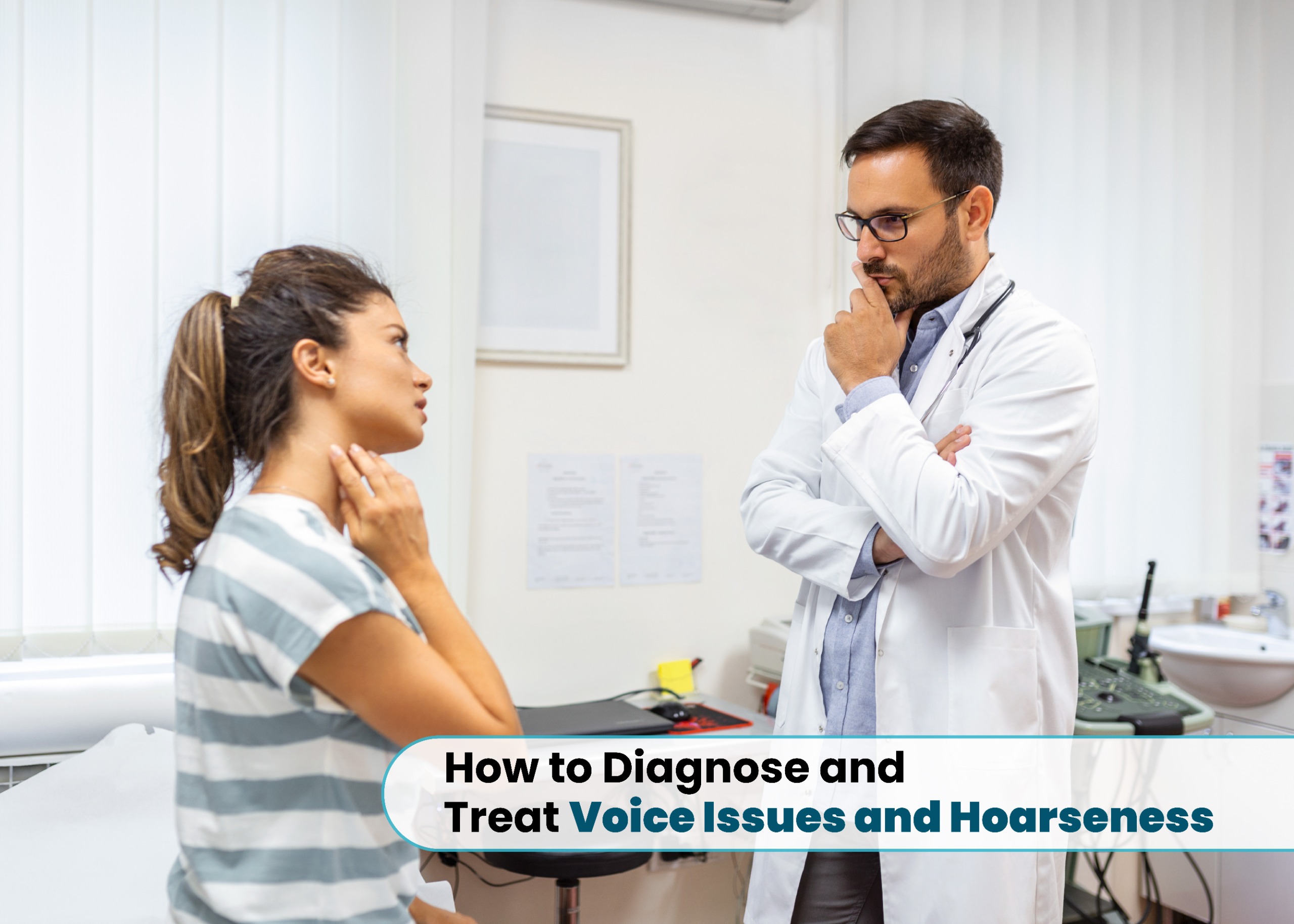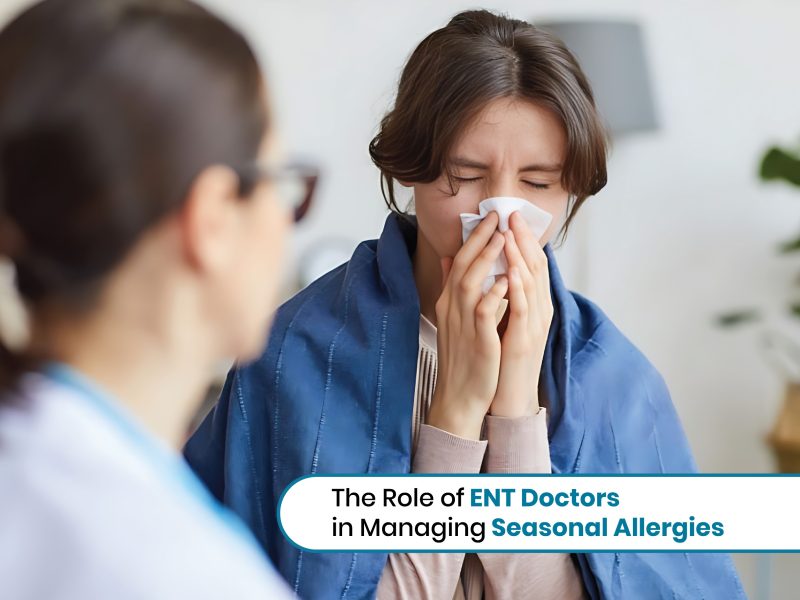Have you ever dealt with a loud, strained, or hoarse voice that stays for several days or even weeks? This condition is referred to as hoarseness—an often underestimated yet common problem that affects vocal well-being. While it may not appear severely disruptive, persistent hoarseness can significantly influence your ability to communicate effectively. In this article, we take a closer look at hoarseness by examining its underlying causes, methods of diagnosis, available treatments, potential risk factors, and strategies for prevention, offering you an in-depth perspective on this vocal health concern.
What is Hoarseness?
Hoarseness, medically termed dysphonia, refers to an abnormal change in voice quality. It often presents as a raspy, strained, breathy, or weak sound while speaking or singing, and in severe cases, the voice may even diminish or disappear completely. The intensity of hoarseness can range from mild to severe and may be either short-lived or persist over time, depending on its root cause. For effective evaluation and care, consider visiting Amrita ENT for specialized voice problem treatment.
Causes of Hoarseness
Hoarseness is a vocal condition that can develop due to several factors impacting the vocal cords or folds. The causes of a hoarse voice are varied, and they can be broadly categorized as follows:
Vocal Abuse or Misuse: Overusing the voice through excessive talking, shouting, or singing without proper technique puts undue strain on the vocal cords. This strain may lead to irritation, inflammation, and a hoarse throat.
Respiratory Infections: Common viral and bacterial infections such as laryngitis, influenza, or even a simple cold often cause swelling in the vocal cords, resulting in temporary voice changes.
Trauma: Physical injury to the throat or vocal cords may impair normal vibration, leading to hoarseness.
GERD: Gastroesophageal reflux disease allows stomach acid to flow back into the throat, irritating the delicate vocal tissues and damaging the cords over time.
Allergies: Environmental allergens and certain foods can trigger inflammation of the throat and vocal cords, contributing to a raspy or strained voice.
Dehydration: Without adequate hydration, the vocal cords dry out and lose flexibility, causing temporary hoarseness.
Vocal Cord Lesions: Abnormal growths like nodules, polyps, or cysts interfere with the cords’ vibration, making the voice sound rough or breathy.
Neurological Conditions: Disorders such as Parkinson’s disease or stroke can disrupt the nerves and muscles responsible for voice production, leading to persistent hoarseness.
Smoking and Pollutants: Regular exposure to cigarette smoke or harmful airborne irritants weakens and damages the vocal cords, increasing the risk of long-term hoarseness.
Risk Factors for Hoarseness
Several factors can heighten the likelihood of developing hoarseness or worsen existing vocal difficulties. These include:
Occupational Demands: Careers that involve continuous or heavy voice use—such as teaching, public speaking, acting, or singing—can place significant strain on the vocal cords, increasing vulnerability to hoarseness.
Smoking: Regular exposure to cigarette smoke irritates and damages the delicate tissues of the vocal cords, often resulting in persistent hoarseness and other voice-related complications.
Alcohol Consumption: Consuming alcohol in excess can cause dehydration, drying out the vocal cords and making them more prone to irritation and hoarse voice.
Chronic Illnesses: Long-term health conditions like gastroesophageal reflux disease (GERD), asthma, and allergies may lead to inflammation or ongoing irritation of the vocal cords, thereby raising the risk of hoarseness.
Age: Natural aging reduces the flexibility and strength of the vocal cords, making them more fragile and susceptible to injury or strain, which commonly results in hoarseness.
Diagnosis
When seeking voice problem treatment, a doctor—most often an otolaryngologist (ENT specialist) or a speech-language pathologist—will carry out a thorough evaluation to diagnose hoarseness with accuracy. This typically involves:
Medical History: The ENT doctor will ask about the duration, intensity, and nature of the hoarseness, along with related symptoms, lifestyle habits, and any underlying health conditions.
Physical Examination: Using specialized instruments such as a laryngoscope or endoscope, the ENT may visually inspect the throat and vocal cords to detect abnormalities, lesions, or signs of irritation.
Voice Assessment: Different voice tests may be conducted, such as sustaining vowel sounds or reading specific passages, to assess vocal quality, tone, and strength.
Imaging Tests: In some cases, imaging procedures like CT scans or MRI may be recommended to rule out deeper structural issues or related conditions.
Laryngoscopy: A laryngoscopy is often performed to closely examine the larynx (voice box), helping the doctor identify the root cause of the problem and determine the most suitable voice problem treatment approach.
Treatments for Hoarseness
Hoarseness management largely depends on the underlying cause and the severity of the condition. Some of the commonly recommended voice problem treatment approaches include:
Voice Rest: Reducing or avoiding speaking and whispering gives the vocal cords time to heal from irritation or strain, making it an effective way to relieve a hoarse voice.
Hydration and Voice Therapy: Proper hydration, along with guided vocal exercises or therapy techniques, helps restore vocal cord function and ease hoarseness.
Medication: Based on the root cause, doctors may prescribe antibiotics for infections, anti-reflux medications for acid reflux, or corticosteroids for significant inflammation.
Surgery: If vocal cord lesions, cysts, or structural abnormalities are present, surgical procedures may be necessary to resolve the issue.
Voice Therapy: Working with a speech-language pathologist or voice therapist helps patients adopt healthier vocal techniques, breathing methods, and strategies to reduce vocal strain. This form of voice problem treatment is especially valuable for long-term vocal health improvement.
Prevention
Preventing hoarseness is often easier than managing it later, and adopting healthy vocal habits plays a crucial role alongside professional voice problem treatment when needed. Some effective preventive measures include:
Proper Vocal Technique: Practicing correct vocal techniques—such as using breath support, warming up before speaking or singing, and avoiding unnecessary strain—helps safeguard the vocal cords.
Hydration: Drinking sufficient fluids throughout the day keeps the vocal cords moist and functioning at their best.
Avoid Irritants: Reducing exposure to smoke, alcohol, and environmental pollutants minimizes irritation and lowers the risk of hoarseness.
Stress Management: Managing stress through relaxation exercises, yoga, or counseling can prevent tension in the vocal cords and protect vocal health.
Vocal Rest: Giving your voice adequate rest after extended or strenuous use helps prevent fatigue and irritation.
Proper Amplification: Using microphones or amplification systems in large spaces avoids the need for shouting or straining the voice.
By combining these preventive habits with timely professional care, individuals can maintain strong vocal health and reduce their reliance on voice problem treatment in the future.
When to See a Doctor
Although hoarseness is usually short-lived and may resolve without treatment, there are situations where consulting a doctor becomes necessary:
- When hoarseness lasts longer than two weeks without showing signs of improvement.
- If it is accompanied by intense pain, difficulty swallowing, or breathing difficulties.
- When a visible or palpable lump appears in the neck or throat region.
- If you experience unexplained weight loss or a chronic, persistent cough.
- When hoarseness develops following an injury or trauma to the neck or throat.
Why Amrita ENT hospital for hoarseness treatment in Hyderabad?
Amrita ENT Hospital provides specialized Hoarseness Treatment in Hyderabad, delivering expert care for all types of voice disorders. Our highly skilled ENT specialists utilize advanced diagnostic tools, including voice analysis and laryngoscopy, to accurately determine the root cause of vocal changes. With tailored treatment plans designed to restore natural voice quality and minimize strain, we ensure effective results. At Amrita ENT, patients receive comprehensive care focused on long-term vocal health and recovery.



